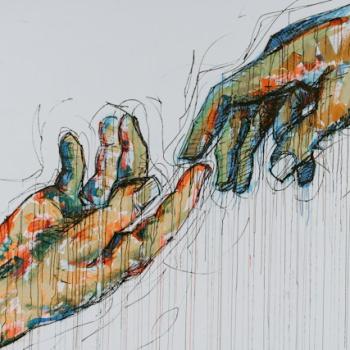
I have attended hundreds of wedding ceremonies in my life. I’ve seen everything from a “high church” Catholic Mass with an army of attendants and doves released in flight to the quickie “I-Do-So-Let’s-Get-This-Party-Started” four-minute ceremony with a justice of the peace. I recently attended the wedding of a colleague of my husband’s, and since I didn’t know either the bride or groom and was only there as my husband’s “plus one,” I was able to evaluate the whole ritual from an unbiased, objective point of view. Sitting in the pew that day, I drew a surprising conclusion – just about every wedding homily or sermon I’ve ever heard is woefully off-base.
Don’t get me wrong; I’m not saying they were poorly written or uninspiring. Quite the contrary – I’ve heard incredibly moving descriptions of love and commitment. I’ve been enraptured by oratory that I can only describe as sheer poetry. I’ve been moved to tears on multiple occasions. But the problem is that as beautiful as these addresses may have been, they’ve also left out a whole heck of a lot. As a 23-year veteran of the institution of marriage myself, I think if I were giving the homily or sermon, I might say something like . . . .
The love of two people is a sacred gift from God. It just doesn’t always feel that way. Like when you share something really important, something emotionally painful with your husband because he’s your soul mate, and when you finish, he says, “I’m playing nine holes after work on Thursday, so I’ll be late for dinner.” Or when you ask your wife what she might like as a gift for your anniversary, and she responds with venom, “Well, if I have to tell you, then we might as well not even celebrate an anniversary!”
Or when your husband invites his mother who lives out of town to stay with you after the baby arrives. For six weeks . . . and is hurt because he doesn’t understand why you aren’t overjoyed to have the help. Or when you open the trunk of your wife’s car to make sure she has jumper cables before an upcoming road trip only to find that she has hidden numerous department store purchases there hoping you will never find out how much money she’s spent. Yes, the love of two people is a sacred gift from God. But at times, all the muck you have to slog through in marriage makes you seriously wonder if you weren’t temporarily insane when you said, “I do.”
In the Gospel, Jesus tell his disciples that if your brother sins, then take him aside and talk to him about it. And if that doesn’t work, then bring in some others to help you work with him. And if that doesn’t work, get some more folks involved. And if that doesn’t work, get the whole church on board to help him (Matthew 18: 15-17). In other words, Jesus says that when people do dumb things or hurt us deeply, we should simply keep at it. Even when people seems like lost causes, when nothing we try seems to work, when it looks like there isn’t one iota of anything worth redeeming in their selfish little souls, we should still keep at it. Then right after that, Jesus sayse that we should forgive. And then when we get hurt again – even at the hands of the very same person – we should forgive again. And again. And again and again and again. In other words, keep at it. Keep slogging through the muck. Keep trying to love.
Naturally, Jesus wasn’t referring to marriage in these passages of Matthew’s Gospel – or at least, not to marriage alone. I think he was giving us insight into ALL human relationships. The closer we are to people, the more muck there is to slog through. And Jesus’ advice is to keep at it, to never give up, even when giving up is the only thing that makes any sense. Of course, there are some relationships that must be ended for the individuals involved to heal and move forward in a healthy way. But I wonder if sometimes we want to pull the plug on some of our relationships because we think love means beautiful emotions and sacrificial giving. It can. It does. But as Jesus explains in the Gospels, perhaps even more so, love also means slogging through the muck. In fact, I think the slogging itself is far closer to the true definition of love than any hearts or flowers could ever be. Love of any kind doesn’t always feel like a sacred gift, but it always is.












